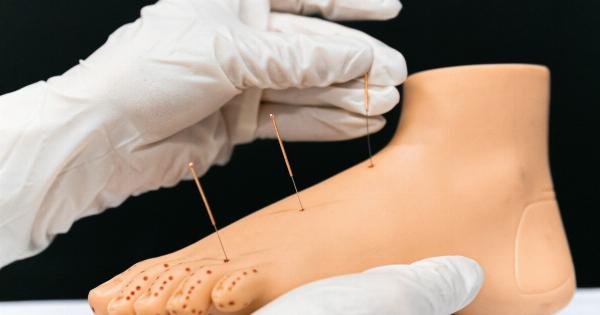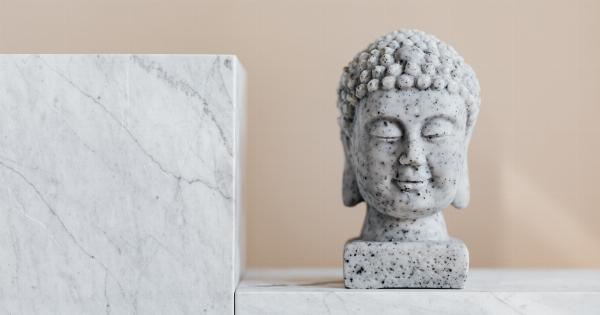Acupuncture is a traditional Chinese medicine technique that has been used for centuries to promote healing and overall well-being.
This ancient practice involves inserting thin needles into specific points on the body to stimulate and balance the flow of energy, known as Qi. Over the years, acupuncture has gained popularity in the Western world as an alternative and complementary therapy for various conditions.
In this article, we will explore some effective strategies to conquer acupuncture and make the most out of this holistic approach to healthcare.
Understanding Acupuncture
Before diving into strategies, it is essential to understand the principles behind acupuncture. According to traditional Chinese medicine, the human body is filled with meridians, which are channels through which Qi flows.
When Qi is disrupted or blocked, it can lead to physical, mental, or emotional imbalances and result in various health issues. Acupuncture aims to restore the smooth flow of Qi, promoting harmony and well-being.
Finding a Qualified Acupuncturist
One of the first steps towards conquering acupuncture is to find a qualified and experienced acupuncturist. Ensure that the practitioner is licensed and has received proper training from a reputable institution.
Additionally, consider seeking recommendations from friends, family, or healthcare professionals who have had positive experiences with acupuncture. A trustworthy acupuncturist will have the knowledge and expertise to tailor the treatments to your specific needs.
Setting Clear Goals
Before embarking on an acupuncture journey, it is helpful to set clear goals for what you wish to achieve through this therapy.
Whether you seek pain relief, stress reduction, or improvement in a specific health condition, articulating your goals can help both you and your acupuncturist create a treatment plan tailored to your needs. Having a well-defined objective ensures that you stay focused and motivated throughout the process.
Preparing for Your Sessions
Prior to your acupuncture sessions, there are a few steps you can take to enhance the effectiveness of the treatments. First and foremost, wear loose and comfortable clothing to allow easy access to the acupuncture points.
It is recommended to have a light meal before your appointment and avoid consuming alcohol or large meals immediately beforehand. Being well-hydrated can also contribute to a successful acupuncture session.
Communicating with Your Acupuncturist
Open communication with your acupuncturist is key to conquering acupuncture.
Be sure to provide your practitioner with accurate and detailed information about your medical history, current health concerns, and any medications or supplements you are taking. The more your acupuncturist knows about your health status, the better they can tailor the treatments to address your specific needs.
Understanding the Sensations
During an acupuncture session, you may experience various sensations, such as mild tingling, warmth, or a dull ache around the needles. It is important to understand that these sensations are normal and part of the acupuncture process.
However, if you experience sharp pain or severe discomfort, inform your acupuncturist immediately. They can adjust the placement or depth of the needles to ensure your comfort.
Being Consistent
Consistency is key when it comes to conquering acupuncture. While some individuals may experience immediate improvements after a single session, most people require multiple treatments to achieve desired results.
Follow the treatment plan recommended by your acupuncturist, attending regular sessions as scheduled. Skipping or delaying appointments can hinder the progress and effectiveness of acupuncture.
Supporting Acupuncture with Lifestyle Changes
Although acupuncture can be highly effective on its own, integrating certain lifestyle changes can complement its benefits.
Engaging in regular physical exercise, adopting a balanced and nutritious diet, and practicing stress management techniques such as meditation or yoga can amplify the positive effects of acupuncture. Your acupuncturist can offer guidance on how to incorporate these changes into your daily routine.
Being Open to Additional Modalities
In some cases, your acupuncturist may recommend additional modalities to enhance your acupuncture treatments. These complementary therapies may include herbal medicine, cupping, moxibustion, or acupressure.
Being open to these modalities can further support your healing journey and provide comprehensive care for your specific health concerns.
Tracking and Evaluating Progress
Keeping track of your progress throughout the acupuncture treatment can be beneficial. Maintain a journal where you can record any changes or improvements in your physical symptoms, emotional well-being, or overall quality of life.
Evaluating these changes over time can help you and your acupuncturist understand the effectiveness of the treatments and make any necessary adjustments to your treatment plan.
Conclusion
Acupuncture holds immense potential in promoting and restoring holistic health. By following the strategies mentioned above, you can conquer acupuncture and harness its benefits to improve your well-being.
Remember to find a qualified acupuncturist, set clear goals, communicate openly, and be consistent in your treatments. Acupuncture, along with supportive lifestyle changes, can empower you on your journey towards optimal health.





























